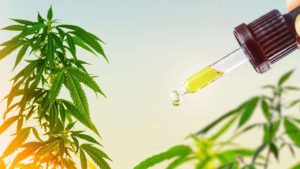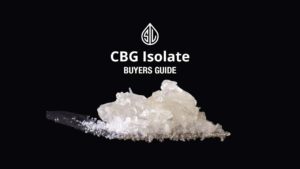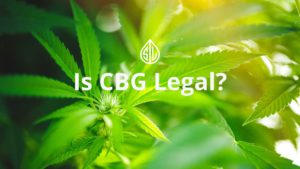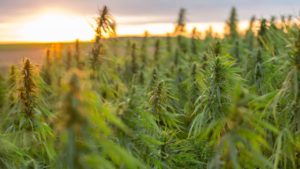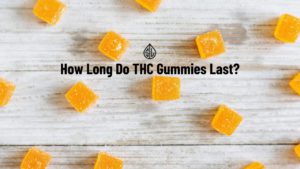
What is CBD?
Learn what CBD is and what it isn't, the difference between CBD from THC and hemp, and more.
What is CBD?
OK, first things first. What is CBD?
Cannabidiol, commonly known as CBD, is a fascinating natural compound that has captured the attention of many due to its potential health benefits. Derived from the hemp plant, a member of the Cannabis Sativa family, CBD is one of over 100 natural plant compounds found in cannabis. Unlike its more famous cousin THC, CBD is non-psychoactive, meaning it doesn’t cause the ‘high’ associated with cannabis use. This unique feature makes CBD an appealing option for those seeking relief from various conditions without the mind-altering effects of marijuana or certain pharmaceutical drugs.
Will CBD get me high?
Nope. The cannabis plant is made up of two main players: CBD and THC. CBD is the non-psychoactive portion of the plant, so what that means is you won’t have any effects like euphoria. There are two possible exceptions to this.
The first is that some people, for unknown reasons, just react differently to CBD. About 5% of people say they feel altered after taking CBD. Usually, they’re the same people who have side effects from Advil or Tylenol. You never know how your body will react to any new supplement, so when taking CBD for the first time, do so safely under supervision.
It’s also crucial to buy third-party-tested CBD for quality assurance (like Simple Leaf). Because the FDA doesn’t regulate CBD, it is possible to buy a product that is more or less potent than advertised or even contains small amounts of THC.
Is CBD Legal?
Yes. CBD is legal as a result of the Farm Bill. No prescription needed. CBD itself is not specifically listed as a controlled substance in the United States under the Controlled Substances Act like THC is. Individual state laws, however, are dynamic & some individual states may govern hemp-derived CBD.
In other words, the latest bill removed hemp from the Drug Enforcement Administration, or DEA’s, purview. Hemp can now be grown freely under federal law, which, of course, is huge. But while it’s legal under federal law, it’s up to each state to set their own policy.
How do You consume CBD?
CBD comes in many variations and can be taken as a general health booster or as an alternative remedy. CBD products include capsules, topical creams, tinctures (oil), ingestible (drinks and food), and many more. CBD Capsules are the most convenient way to get your daily dose of CBD. If you are active & on the go then our CBD capsules are the perfect fit for you.
Can you travel with CBD?
That same 2018 Farm Bill means you can now travel between states with legit CBD products. Flying with CBD should pose no issues. However, if you’re traveling with a tincture, be mindful of TSA limits on how much liquid you can carry on an airplane. You can also mail CBD products, just like companies that comply with the Bill can ship their hemp-derived CBD products anywhere in the U.S.
What should I look for when shopping for CBD products?
Here are a few things you should keep in mind when shopping.
What does the label look like?
We don’t mean the color or millennial font. Does it have a back panel with an FDA disclaimer and warning section. Ideally, it would be preferable to have a QR code with access to their third-party lab testing results too.
Has it been third-party tested?
Your CBD products should be tested by a third party to confirm the label’s accuracy. Look for a quality assurance stamp or certificate of analysis from a third party (aka not the actual brand) or check the retailer’s website if you don’t see it on the product’s label.
CBD brands will provide third-party lab test results to ensure their products are free from contaminants like heavy metals, pesticides, and synthetic cannabinoids. It’s also crucial to look for products made from organically grown hemp and extracted using safe methods like CO2 extraction.
What’s the dosing?
This is a confusing one for many people. A lot of brands don’t do a good job of clearly instructing their consumer on the dosing.
The Science Behind CBD
CBD works by interacting with the body’s endocannabinoid system (ECS), a complex network of cannabinoid receptors spread throughout the body.
CBD Products and Their Uses
CBD is available in various forms, including oils, capsules, edibles, and topicals. Each form offers different advantages and can be chosen based on personal preference and specific needs. For instance, CBD oils are known for their fast absorption and efficacy, while capsules offer a convenient and discreet way to consume CBD. Topicals, on the other hand, are ideal for localized relief.
The Final Word
CBD is a remarkable natural compound with the potential to impact health and wellbeing significantly. Its ability to interact with the body’s endocannabinoid system makes it a unique supplement for those seeking natural alternatives for various health concerns. As research continues to unfold, the future of CBD looks promising. It’s essential to approach it with an informed and cautious mindset, ensuring you choose high-quality, safe products from reputable sources.


